The rise of
nanomedicine
A new area that combines nanodiagnostics and nanotherapy.Nanomedicine
(nanotechnology) is the medical application to improve our lives and health.
- Diagnosis, delivery, sensing/actuation purposes in a living organism.
- Detect and treat damage to the human body.
- To cure diseases and repair damaged tissues such as bone, muscle and nerve.
- Explore translational nanomedicines cancer, cardiovascular and neurological disorders, HIV/AIDS, and diabetes, as well as many types of inflammatory & infectious diseases.
ASPIRE
nanovaccine
It is derived from recombinant adenovirus-infected dendritic cells
- Peptide major histocompatibility complex class I (pMHC-I)
- Anti-PD1 Antibody
- B7 co-stimulatory molecules
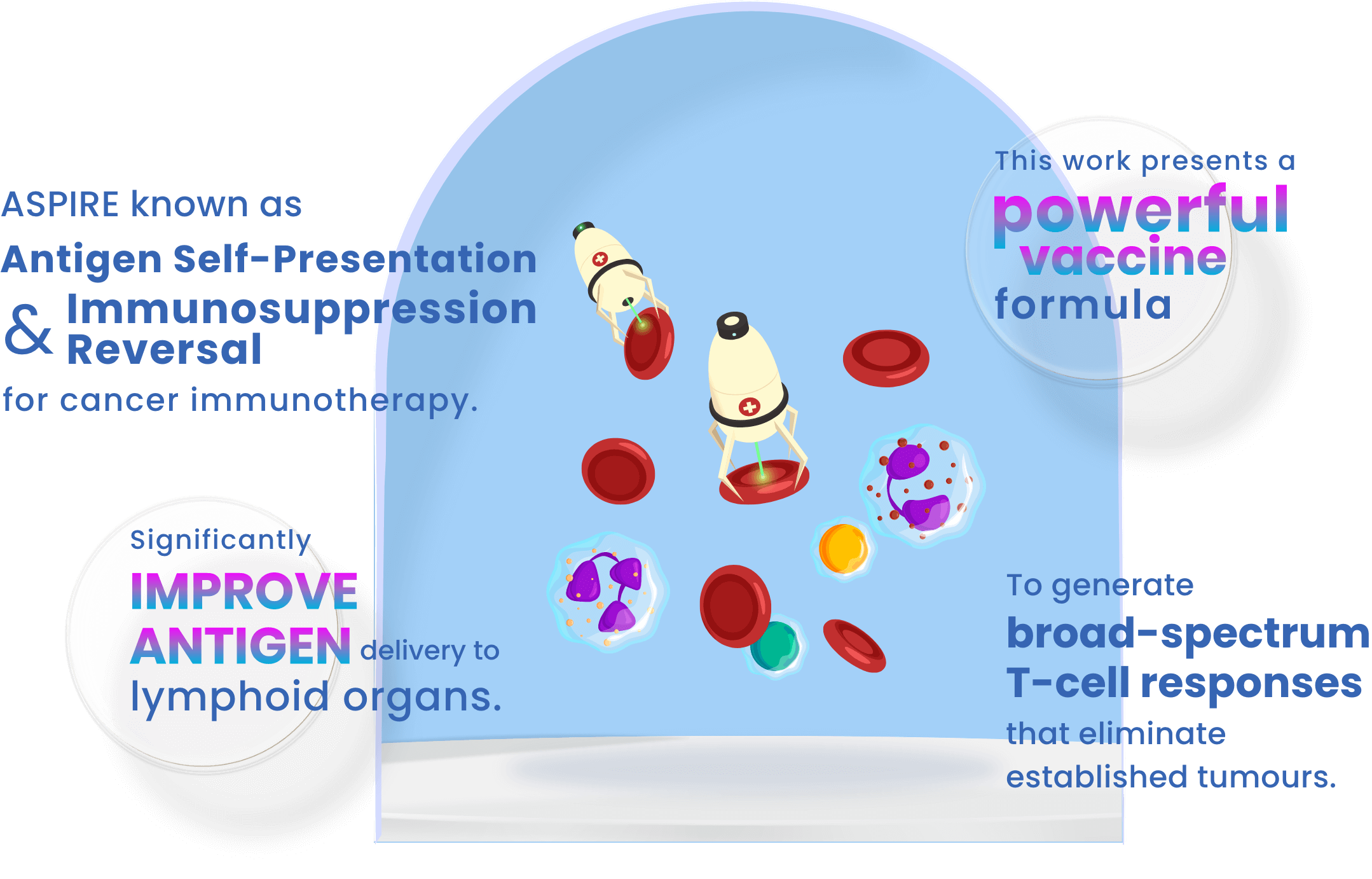
ASPIRE
nanovaccine
It is derived from recombinant adenovirus-infected dendritic cells
- Peptide major histocompatibility complex class I (pMHC-I)
- Anti-PD1 Antibody
- B7 co-stimulatory molecules

mEVs ALLEVIATE ULCERATIVE COLITIS BY
regulating gut immunity & reshaping gut microbiota
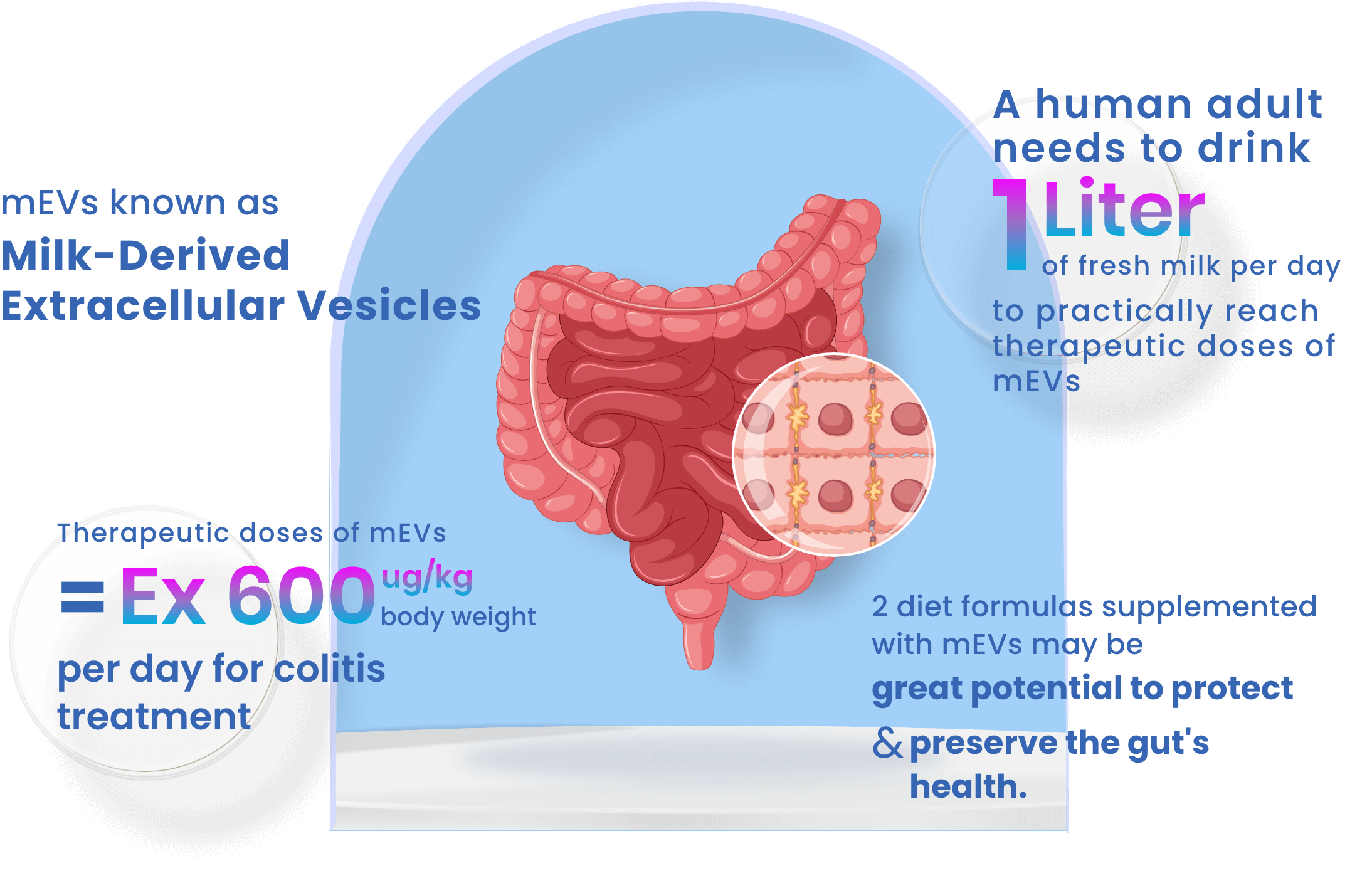
mEVs ALLEVIATE ULCERATIVE COLITIS BY
regulating gut immunity & reshaping gut microbiota

MILD
microneedle pattern
It is a smart delivery platform serves as a promising carrier to improve COVID-19 vaccination efficacy through its dual capabilities of vaccine delivery and in situ data storage.
Thus exhibiting great potential to aid in containing COVID-19 pandemic or a resurge.
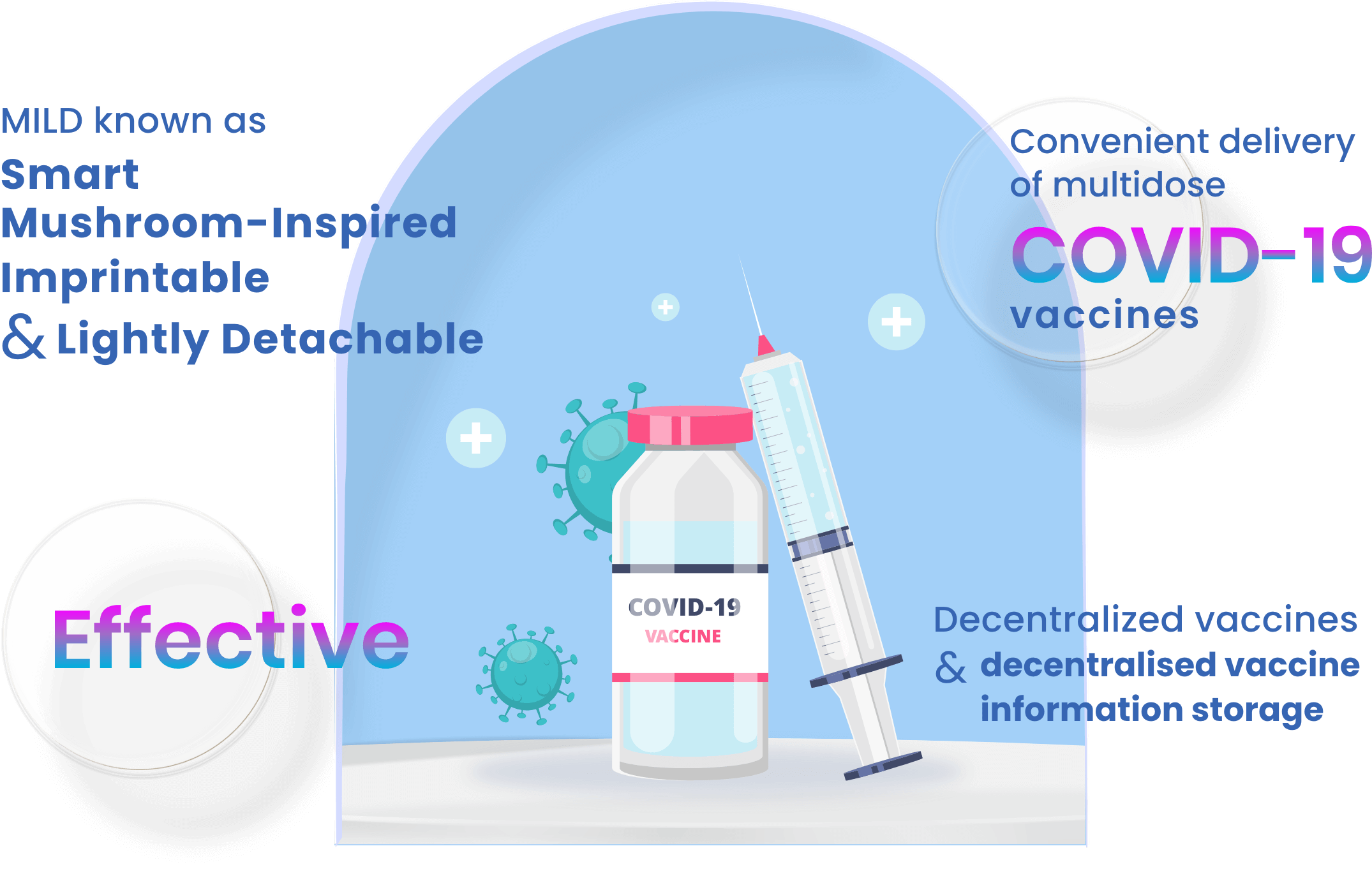
MILD
microneedle pattern
It is a smart delivery platform serves as a promising carrier to improve COVID-19 vaccination efficacy through its dual capabilities of vaccine delivery and in situ data storage.
Thus exhibiting great potential to aid in containing COVID-19 pandemic or a resurge.

get to know about our
Principal Investigators

Dr Chen Xiaoyuan, Shawn
Director, Nanomedicine Translational Research Programme, NUS Yong Loo Lin School of Medicine

Dr Dan Yock Young
Principal Investigator, Nanomedicine Translational Research Programme, NUS Yong Loo Lin School of Medicine

Dr Wang Jiongwei
Principal Investigator, Nanomedicine Translational Research Programme, NUS Yong Loo Lin School of Medicine

Dr Ni Qianqian
Principal Investigator, Nanomedicine Translational Research Programme, NUS Yong Loo Lin School of Medicine

Dr Zhang Jingjing
Principal Investigator, Nanomedicine Translational Research Programme, NUS Yong Loo Lin School of Medicine

Dr Tang Wei
Principal Investigator, Nanomedicine Translational Research Programme, NUS Yong Loo Lin School of Medicine

Dr Storm Gert
Principal Investigator, Nanomedicine Translational Research Programme, NUS Yong Loo Lin School of Medicine

Dr Lingwen Ding
Principal Investigator, Nanomedicine Translational Research Programme, NUS Yong Loo Lin School of Medicine

Dr Chen Xiaoyuan, Shawn
Director, Nanomedicine Translational Research Programme, NUS Yong Loo Lin School of Medicine

Dr Dan Yock Young
Principal Investigator, Nanomedicine Translational Research Programme, NUS Yong Loo Lin School of Medicine
3
project themes
supported by shared technologies & cores
Nanoplatforms for multimodality molecular imaging
Nanovaccines
Gene and drug delivery
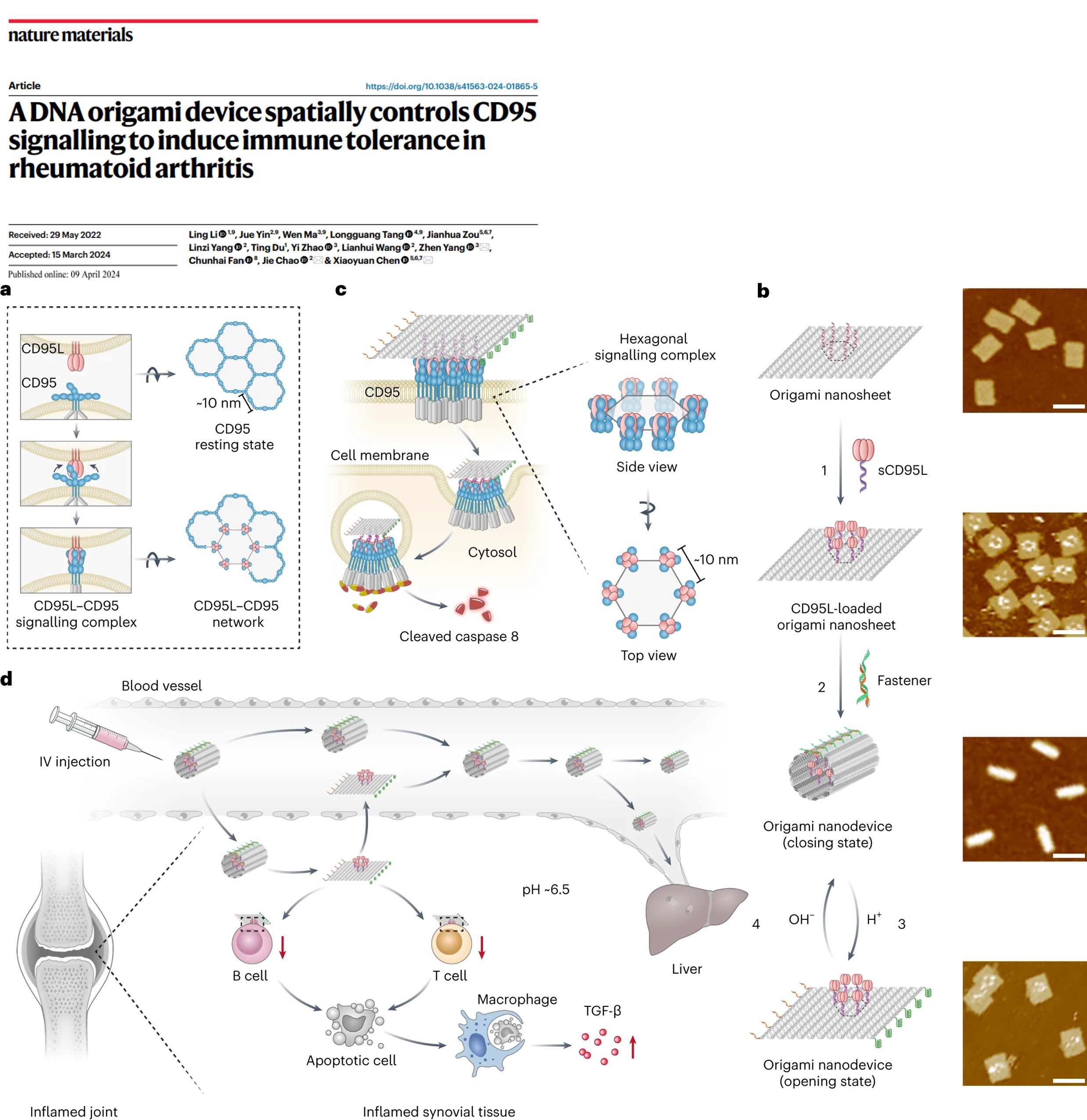
A DNA origami device spatially controls CD95 signalling to induce immune tolerance in rheumatoid arthritis
On April 9th, our recently work about the DNA origami device which can spatially control

Theranostics got the latest Journal Impact Factor (IF) of 12.4!
Theranostics has just received its latest Impact Factor for the year 2022, which is 12.4.

Gas-Mediated Tumor Energy Remodeling for Sensitizing Mild Photothermal Therapy
Abstract The metabolic reprogramming of tumors requires high levels of adenosine triphosphate (ATP) to maintain

Tumor-microenvironment-responsive poly-prodrug encapsulated semiconducting polymer nanosystem for phototherapy-boosted chemotherapy
Abstract Phototherapy-induced hypoxia in the tumor microenvironment (TME) is responsible for diminished therapeutic efficacy. Designing
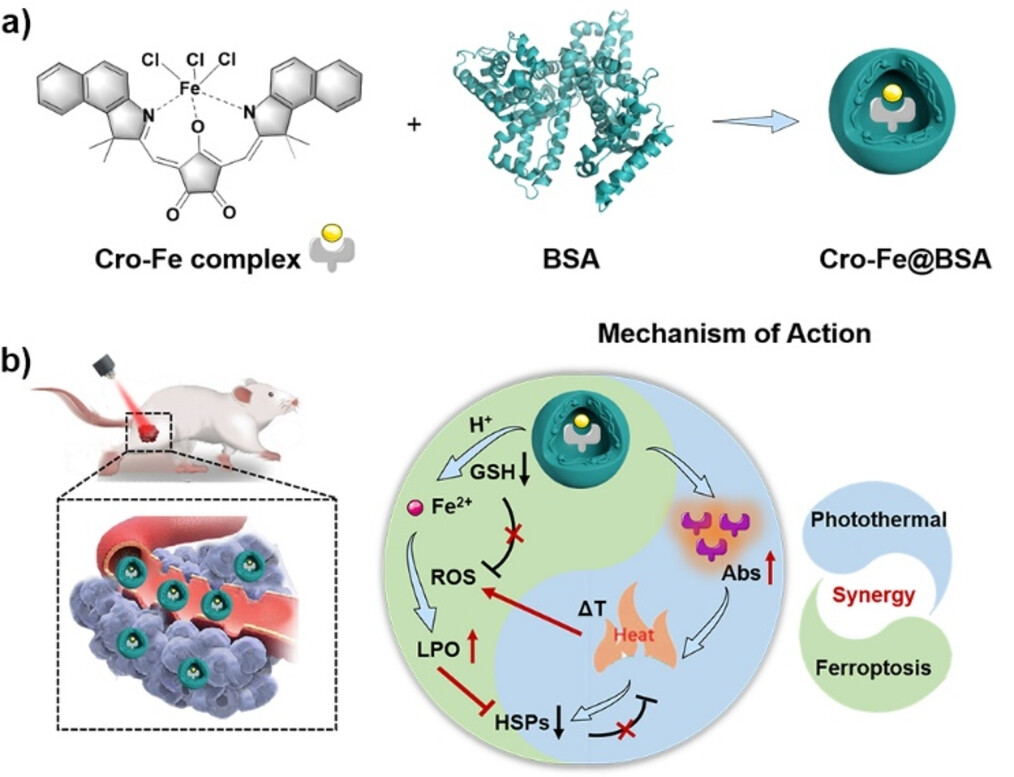
Coordinating the mechanism of actions of ferroptosis and photothermal effect for cancer theranostics
Abstract The objective of this study was to determine the safety, kinetics, and dosimetry of

Targeting the activity of T cells by membrane surface regulation for cancer theranostics
T cells play a determining role in the immunomodulation and prognostic evaluation of cancer